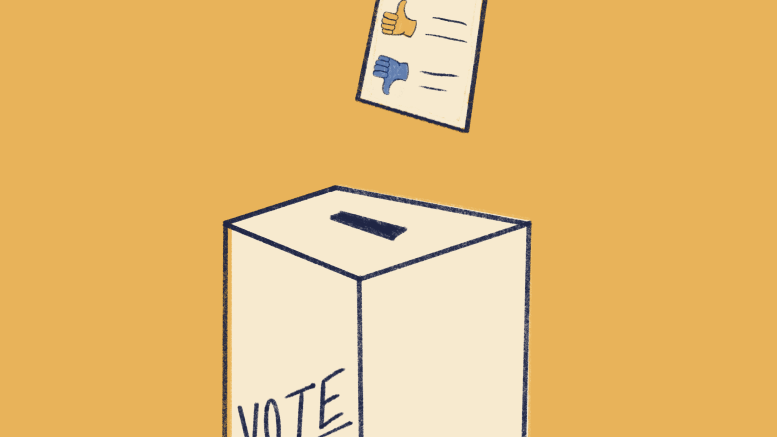Since President Joe Biden dropped out of the presidential race, the Kamala Harris presidency campaign has made waves on the popular app TikTok. KamalaHQ, the official campaign TikTok, received over 232 million views and 33 million likes in its first week. The account’s profile picture mimics the pop music icon Charli XCX’s album of the summer, Brat, and the posts engage in TikTok trends. Notably, one of the top posts features a series of photos set to pop singer Chappell Roan’s song “Femininomenon,” garnering 56.8 million views and 7.4 million likes at the time of publication.
TikTok is overwhelmingly used by Gen Z, with over 60 per cent of users aged between 10 to 29. Gen Z makes up 17 per cent of the eligible voting demographic this year in the U.S. and will only increase as this generation ages into voting eligibility. Harris’s campaign is strategically tapping into this crucial voter base. KamalaHQ is reminiscent of former president Barack Obama’s use of Facebook to appeal to young voters, making the 2008 election the “Facebook election” and Obama the “first social media president.” The use of pop culture plays a significant role in campaign strategy, and it has been that way since the emergence of mass media and popular culture as we know it today.
Famously, in 1960, the first televised presidential debate aired, attracting over 65 million viewers. The debate was between Richard Nixon and John F. Kennedy. The television has been credited for significantly influencing the outcome of the 1960 U.S. presidential election.
If you’re unfamiliar, it’s said that those who listened to the debate through the traditional medium, radio, felt that Nixon performed better. However, those who watched the televised broadcast felt Kennedy had performed better. Kennedy, the youngest elected president, appeared attractive and articulate, contrasting sharply with Nixon’s pale and sweaty demeanour. This televised appeal helped Kennedy secure a significant 43 to 48 per cent lead in the polls post-debate, marking a pivotal moment in political campaigning.
Strategic use of pop culture in the 1960 election didn’t end there. Televised campaign ads were an important strategy. Kennedy used endorsements of popular American actor Henry Fonda and commercials that demonstrated personality, emphasizing Kennedy’s likeability. Meanwhile, Nixon emphasized professionalism in his campaign ads. It comes as no surprise that Kennedy secured 54 per cent of the vote from ages 21 to 29. And as we know, Kennedy won the 1960 presidential election.
Another election, another platform. Barack Obama used Facebook to reach young voters and Donald Trump gained success in 2016 largely due to his use of Twitter (now X). And now, we have KamalaHQ. From television to Facebook, X and TikTok, the history of using popular platforms to boost a candidate’s likeability and display personality is long. We can see the same long-standing strategy with other mediums, such as campaign songs.
Harris’s Tiktok campaign is garnering loads of attention, and proving effective. Pop culture has the distinct advantage of increasing political participation and in a way that is accessible and engaging.
While this engagement is entertaining, it does not necessarily result in a net positive for democracy. It often leads to a superficial understanding. People may think they know a candidate but might not be making informed decisions due to a lack of focus on the serious aspects of an election – policy. When a policy is highlighted, it’s often wrapped up in our preconceived opinion of the candidate proposing it.
The moral of the story is that entertainment is a vital and inescapable part of the political process. How do you get an entire nation or demographic to pay attention? How do you strategize to win? You entertain and display likeability to your target audience.
Our tendency to find enjoyment through the political process shouldn’t come at the cost of critical thinking. We can continue to question our leaders and make an informed vote while enjoying the performance of Megan Thee Stallion at the Harris rally. As Canadians, let’s take this lesson from our southern neighbours to heart, ensuring that we balance our enjoyment of the political spectacle with a commitment to informed, critical voting in our next federal election.



